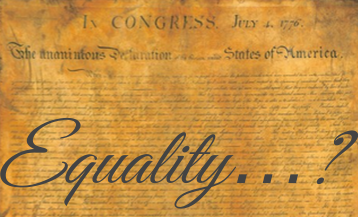The Big Question - Russia: Friend or Foe? Don't Ask a Democrat
I haven’t seen this much about Russia in the news since the Cuban Missile Crisis in 1962. Of course, I wasn’t reading newspapers back then, but I’m sure Russia made the headlines a time or two.
In case you’ve been living under a rock, the Democrats are in a frenzy lately, regarding the potential impact that Russian hacking had on the 2016 presidential election. Obama has in fact pledged to “take action” in retribution for what Russia has done.
You may be asking, “Are you sure it’s the Democrats? The same Democrats who guffawed, mocked, ridiculed, and chided Donald Trump for even suggesting that the integrity of the United States election might be compromised? You mean the same Democrats that said he was jeopardizing democracy itself by even daring to question the legitimacy of the electoral process?”
As we’ve noted before here at Paineful Truth, they tend to have a bent toward hypocrisy. And the media tends to have a bent toward letting them get away with it.
Be that as it may, I thought it would be good to take a look back before we begin charting our course forward. What should America’s attitude toward foreign nations be? How should we handle nations like Russia? As always, a wealth of information lays (undisturbed by politicians) in our history.
Hello “Farewell”
One of the most beautifully written and wisdom-filled essays ever written is also probably also one of the most overlooked. George Washington’s “Farewell Address” has more common sense and good political philosophy than all the present day college poli sci lectures put together.
Washington lays out, for any who will listen, exactly how we should deal with foreign governments.
“...nothing is more essential than that permanent, inveterate antipathies against particular nations, and passionate attachments for others, should be excluded; and that, in place of them, just and amicable feelings towards all should be cultivated.”
To translate, don’t buddy up with one nation while actively being hostile to another. Always make the attempt at friendliness.
“The great rule of conduct for us in regard to foreign nations is in extending our commercial relations, to have with them as little political connection as possible. So far as we have already formed engagements, let them be fulfilled with perfect good faith. Here let us stop.”
Washington was not an isolationist. Rather he was always looking out for America’s best interest. He recommended “Harmony, liberal intercourse with all nations, are recommended by policy, humanity, and interest.” But he also envisioned a time “...when we may defy material injury from external annoyance...” In other words, a time where America was not dependent on what any other nation did.
Neither was Washington an idealist. He realized that attempts at friendship could fail. America would have enemies. Therefore, he counseled us: “Taking care always to keep ourselves by suitable establishments on a respectable defensive posture...”
The Russia Question
In order to know how to treat Russia, we must answer whether Russia is hostile to America, or whether we can cultivate amicable feelings. If Russia hacked into election computers and changed just enough votes in just the right places all across the country so that Trump was elected instead of Clinton, I think we can all agree that that would be a hostile action and not to be tolerated.
However, and this is far more likely, Russia is hacking our computers for intelligence gathering purposes (just like we are hacking their computers). If this is the case then, however strange it is, that’s business as usual in today’s world of international cyber communication.
To my knowledge, there is no proof that Russia did anything to add, subtract, or alter votes in the 2016 presidential election. Whether they hacked the DNC and exposed some dirt laundry, and that ended up influencing the election, is another issue altogether.
No one is denying that the DNC made it extremely difficult to Sanders to win the election. No one is denying that the information was scandalous enough for Debbie Wasserman Schultz to be forced to resign. No one is denying any of that information. They are merely saying that it was unfair that the truth influenced the election.
It’s like saying, “You told the boss that I was embezzling money and he fired me! This is all your fault!”
Final Thoughts
Is Russia a friend or foe? It is likely that those receiving security briefings are far more qualified to answer a question like that. However, either way, we know from our first president what our response should be. Now, let’s hope Trump takes the time to learn a lesson from America’s Founding Father.
Follow on Twitter: @painefultruth76
Let us know what you think: painefultruth1776@gmail.com




Comments
Post a Comment